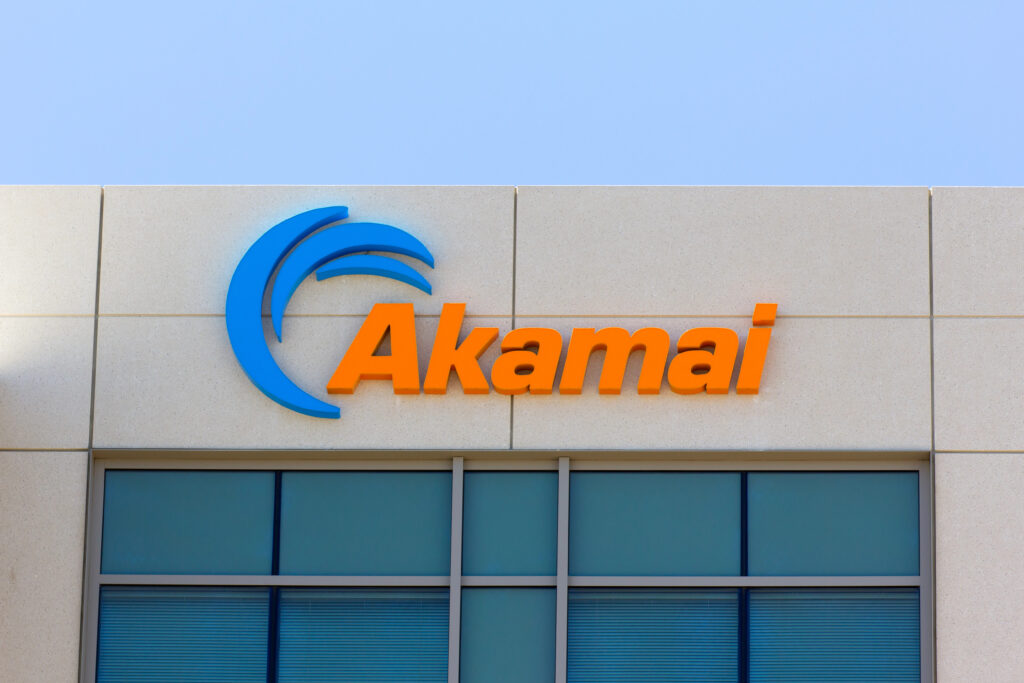In 2024, tech giants are making unprecedented investments to accelerate cloud infrastructure growth across APAC. This strategic expansion isn’t merely about increasing capacity; it’s a transformative move towards a more agile, automated, and resilient cloud ecosystem. The implications for businesses are profound, whether local enterprises or global players eyeing the APAC market. As we delve into the details of these investments and their potential impact, gain valuable insights into how this cloud revolution could reshape technological strategy and competitive edge in the coming years.
Major Tech Investments Accelerating Cloud Growth in APAC
Google’s Strategic Expansion
- Google’s substantial investments of $2 billion in Malaysia and $5 billion in Singapore underscore its commitment to bolstering cloud infrastructure in the APAC region. These investments also aim to enhance data processing capabilities and improve service delivery to meet the growing demand for cloud services in Southeast Asia.
Amazon‘s Multi-Country Approach
- Amazon’s strategic investments across Taiwan, Singapore, and Japan demonstrate its recognition of the diverse tech landscape in APAC. By spreading its resources across multiple countries, Amazon is positioning itself to cater to varied market needs and leverage each nation’s unique technological strengths.
Akamai’s Edge Computing Focus
- Akamai’s expansion of edge computing locations in Hong Kong and Kuala Lumpur reflects the increasing importance of low-latency, high-performance computing solutions. Thus, this move aligns with the growing trend of bringing computation closer to end-users, enhancing user experience, and enabling real-time data processing capabilities.
Impact on APAC’s Tech Ecosystem
- These investments are not just about infrastructure; they’re catalysts for innovation and talent development. By embedding cutting-edge technology within APAC’s talent pool, these tech giants are fostering an environment ripe for sustained growth and technological advancement. This influx of resources and expertise is likely to accelerate the region’s transition towards a more flexible, automated, and resilient cloud ecosystem.
Google and Amazon Bet Big on APAC Cloud Infrastructure
Massive Investments in Regional Expansion
- Google and Amazon are making unprecedented investments in cloud infrastructure across the Asia Pacific region. Google’s commitment of $2 billion in Malaysia and $5 billion in Singapore underscores its confidence in the area’s potential. Meanwhile, Amazon has announced substantial investments in Taiwan, Singapore, and Japan, solidifying its presence in key APAC markets.
Strategic Positioning for Future Growth of Cloud in APAC
- These tech giants are strategically positioning themselves to capitalize on the region’s burgeoning demand for data and cloud services. By embedding cutting-edge technology within APAC’s talent pool, they’re not just expanding their footprint but also fostering innovation and preparing for sustained growth in the long term.
Impact on Regional Tech Ecosystem
- The influx of investment is likely to have a ripple effect on the local tech ecosystem. As these companies build out their infrastructure, they’ll create new job opportunities, stimulate the development of ancillary industries, and potentially attract other tech firms to the region. This could accelerate the digital transformation of APAC economies and solidify the region’s status as a global tech hub.
Akamai Expands Edge Computing Footprint Across APAC

Strategic Investments in Hong Kong and Kuala Lumpur
- Akamai Technologies, a global leader in content delivery network (CDN) services, is making significant strides in expanding its edge computing capabilities across the Asia-Pacific region. With a focus on Hong Kong and Kuala Lumpur, Akamai is strategically positioning itself to meet the growing demand for low-latency, high-performance computing services in these key markets.
- The company’s investment in new edge computing locations demonstrates its commitment to enhancing digital experiences for users throughout APAC. By bringing computational resources closer to end-users, Akamai aims to reduce latency, improve data processing speeds, and bolster overall network performance.
Implications for Regional Digital Infrastructure
- This expansion has far-reaching implications for the digital landscape in APAC. Businesses in Hong Kong and Kuala Lumpur will benefit from improved access to cutting-edge technologies, enabling them to deliver faster, more reliable services to their customers. Moreover, Akamai’s enhanced presence in these cities will contribute to the development of a more robust and resilient digital infrastructure across the region.
- As edge computing becomes increasingly vital for emerging technologies such as IoT, AI, and 5G networks, Akamai’s strategic investments position the company as a key player in shaping the future of digital innovation in APAC. This move not only strengthens Akamai’s market position but also supports the region’s digital transformation initiatives, fostering economic growth and technological advancement.
Flexible, Automated and Self-Healing: The Future of Cloud
As cloud infrastructure evolves, the future lies in systems that are more adaptable, autonomous, and resilient. This shift towards a more dynamic cloud ecosystem is driven by the increasing demand for efficient, scalable, and reliable services.
Flexibility: Adapting to Changing Needs in the Cloud
- Cloud infrastructure is becoming increasingly flexible, allowing businesses to scale resources up or down based on demand. This elasticity enables companies to optimize costs and performance, ensuring they only pay for what they use. The ability to rapidly adjust to market fluctuations and customer needs is a key advantage in today’s fast-paced digital landscape.
Automation: Streamlining Operations Using Cloud
- Automated cloud systems are revolutionizing IT management. By leveraging artificial intelligence and machine learning, these systems can handle routine tasks, predict potential issues, and optimize performance without human intervention. This not only reduces operational costs but also minimizes human error, leading to more reliable and efficient cloud services.
Self-Healing: Ensuring Continuous Availability
Perhaps the most exciting development is the emergence of self-healing cloud infrastructure. These advanced systems can detect and resolve issues automatically, often before they impact users. By continuously monitoring performance and security, self-healing clouds can:
Identify and also isolate faulty components
Reroute traffic to healthy nodes
Automatically provision new resources as needed
This proactive approach significantly reduces downtime and enhances overall system reliability, which is crucial for businesses that depend on continuous cloud availability.
Preparing APAC’s Talent for Sustained Cloud Innovation
As major tech companies invest heavily in cloud infrastructure across the Asia Pacific region, a crucial focus emerges. It is none other than cultivating a skilled workforce to drive and sustain this digital transformation. The influx of cutting-edge technology presents both challenges and opportunities for APAC’s talent pool.
Upskilling the Existing Workforce
- To meet the growing demand for cloud expertise, companies are implementing comprehensive training programs. These initiatives aim to bridge the skills gap, equipping current employees with the knowledge needed to manage and innovate within cloud environments. From cloud architecture to data analytics, professionals are being trained in a wide array of cloud-related disciplines.
Fostering Academic Partnerships
- Tech giants are collaborating with universities and vocational institutions to develop curricula that align with industry needs. These partnerships also ensure that graduates enter the workforce with relevant, up-to-date skills in cloud computing, artificial intelligence, and cybersecurity. By embedding cloud technology into educational programs, the region is laying a foundation for long-term innovation.
Creating Innovation Hubs
- The establishment of innovation centers and tech hubs across APAC serves as a catalyst for talent development. These spaces also provide hands-on experience with state-of-the-art cloud infrastructure, fostering a culture of experimentation and continuous learning. By bringing together industry experts, researchers, and aspiring tech professionals, these hubs accelerate the pace of innovation and knowledge transfer in the region.
To Sum It Up
As you navigate the rapidly evolving cloud landscape in APAC, it’s crucial to stay informed about these significant infrastructure investments. The strategic moves by tech giants like Google, Amazon, and Akamai underscore the region’s growing importance in the global cloud ecosystem. By embracing these advancements, you can position your organization to leverage cutting-edge technologies and tap into the expanding talent pool. As cloud infrastructure continues to mature across APAC, you’ll find new opportunities for innovation, scalability, and efficiency. Keep a close eye on these developments to ensure your business remains competitive and agile in the face of this transformative shift in the region’s digital infrastructure.
More Stories
Amazon’s ‘Get Book’ Button Breaks Apple’s Grip on iOS Kindle Purchases
Amazon has introduced a “Get Book” button in its iOS Kindle app, marking a pivotal moment in the ongoing battle over digital purchase control.
Gamuda Powers Malaysia’s Digital Leap with Google’s Data Center Deal
Google has awarded Gamuda Berhad a significant contract to develop a hyperscale data center in Malaysia. This collaboration highlights Google’s investment strategy to strengthen cloud infrastructure and AI capabilities in Southeast Asia.
Agent Hospital: China’s AI Doctors Redefine Global Healthcare Frontiers
China’s “Agent Hospital” emerges as a revolutionary force in healthcare. Developed by Tsinghua University, this groundbreaking facility boasts the world’s first fleet of fully AI-driven medical professionals.
Fintech Alliance PH Welcomes Paynamics to Strengthen Digital Payments Ecosystem
In the Philippines' financial technology sector, Fintech Alliance PH announces a pivotal collaboration with Paynamics Technologies Inc. This partnership signals...
Spotify Unveils ‘Plays’ Count, Turning Podcasts into a Popularity Contest
Spotify has taken a bold step by unveiling a new “plays” count feature for podcasts, a move that promises to redefine the dynamics of content popularity. This innovation introduces a level of transparency akin to the metrics seen on video platforms, turning podcasting into a competitive arena where every play counts.
Pinterest’s AI-Powered Visual Search Revolutionizes Fashion Discovery
Pinterest leads digital fashion discovery with its groundbreaking AI-powered Visual Search technology. This tool transforms your online browsing experience.


